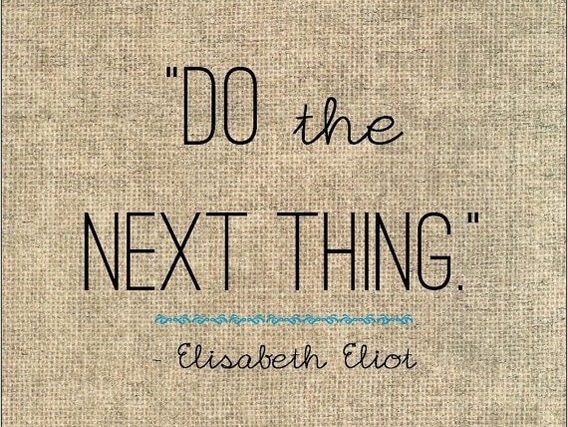October 11, 2017
I cheated on Matt when we were dating.
I remember saying in the moment, “I don’t want to hurt Matt.” It sobered me that time, but not enough to prevent me from a repeat scenario.
Later, I felt the pinprick of conviction. Later, I felt terrible for him. Later, I confessed to his face, and watched his heart rip apart.
But it wasn’t Matt’s sorrow that led to my repentance.
If adultery is “looking at a woman with lustful intent in his heart,” Matt cheated on me with pornography for several years while we were married (Matt. 5:28).
He remembers how I repeatedly said, “Matt, you’re so honorable. I am so glad I can trust you.” I didn’t know what was going on behind the scenes. Each time I said it he secretly promised, I’m going to be better. I am going to live up to the image Laurie sees.
The vows encouraged a few days of abstaining, but they were never enough to change his pattern for very long.
Later, he felt the conviction. Later, he felt terrible for me. Later, he confessed to my face, and watched my heart rip apart.
But it wasn’t my agony that led to his repentance.

We can often live out of a paradigm of, “If it hurts someone, don’t do it,” and, “If it does not hurt someone, do it.” The pain (or lack thereof) on a human’s face is the primary indicator of what is right and wrong.
The problem with this is we end up in a “I’m in pain!” “No, I’m in MORE pain!” battle. There are no winners in that fight. We all end up bloodied and on the floor, gasping for what we believe is limited love oxygen.
We need someone to breathe unlimited life and love into us, and teach us how to share it with others. We need a loving, living, holy Judge. We need someone impartial and yet completely biased favorably toward each of us equally.
We have Someone.
When David committed adultery with Bathsheba and had her husband, Uriah, murdered, how did David process his sin? “Against you [God], and you alone, have I sinned” (Ps. 51:4, Italics mine).
His primary focus is not on Uriah—the one he had murdered. David’s eyes were on God’s heart.
While Saul made his way to Tarsus to persecute the Christians, Jesus halted him in his tracks saying, “Saul! Saul! Why are you persecuting me?” (Acts 9:4, Italics mine)
Jesus did not highlight Stephen—the Christian that Saul persecuted until death—or bring up the others he had killed. Jesus pointed to himself.
When God spoke through the prophet Isaiah to his people Israel about their worship of other gods and sacrifice of their children to these gods, the One True God said, “You have committed adultery on every high mountain… You have left me” (Is. 57:7-8).
God didn’t focus on the sacrificed children. He made a bigger deal about their cheating on Him.

Why? Seeing people in pain is not enough to instigate long-lasting change. It can be a great start, but the only way we can truly love our neighbor for any length of time is when we love the Creator of our neighbor with all our heart, soul, mind and strength.
I cheated on Matt when we were dating, and he cheated me while we were married. But we both cheated on God. We both said (and can still say), “God, you’re not enough; we will look elsewhere. We know what is best for us.” And in so doing, we spit on his sacrifice: Jesus Christ.
I don’t want to spit on humble Jesus.
This is conviction. This is what leads to repentance. Matt’s pain or my pain alone cannot change a heart. It is only the kindness, tolerance, and patience of a holy God that led (and leads) us to repentance.
Against you, and you alone, have I sinned.

1. Reflect: Sin is not a popular topic, but I find the more I get to know the love God has for me, the more I don’t want to fail him. I don’t want to sin. It doesn’t feel legalistic and like my identity or value is based on if I sin or not…I just don’t want to spit on Jesus. I want to please God. What about you? Does serving and obeying (another unpopular word) the Father give you joy or feel legalistic?
2. Reflect Again: If you answer “legalistic,” I would encourage you to pray for people who can help display the loving heart of the Father. I am not naturally great at making friends, but I have prayed for friends, mentors, counselors, and God brings people at the right time to show me this love. Pray for that. Pursue that. Risk for that.
3. Read: If you’re wresting with the love piece, read Ephesians 3 on repeat until you begin to better understand the “height, depth, breadth…” of the love of Christ. I have been wrestling with the love of Christ lately, and have had read that chapter on the daily for weeks. I need more of God’s love every day.
4. Listen: When I’m feeling like, “Meh, God doesn’t care about sin. Also, I don’t really feel like he’s in control,” I listen to Isaiah 40-60 on the Bible app. It reinvigorates my love and respect of our sovereign, loving God.
5. Watch: I love Francis Chan’s response to the question about same-sex behavior. The point of what he says is not even about same-sex behavior, but about our failure to submit ourselves to the Father and the Word. So convicting and right on.
One highlight from the clip: “Whatever sin issue you’re dealing with today, I say to people, ‘Are you willing to surrender to God? No matter what he says?’ What if he said in this book, ‘Chinese people have to stand on their heads?’ I’ll try to stand on my head. He’s God. What if he said, ‘Chinese people don’t get to marry?’ He’s God. I don’t like that, but I’m going to surrender to that because I understand the difference between a Creator and a created being.”



